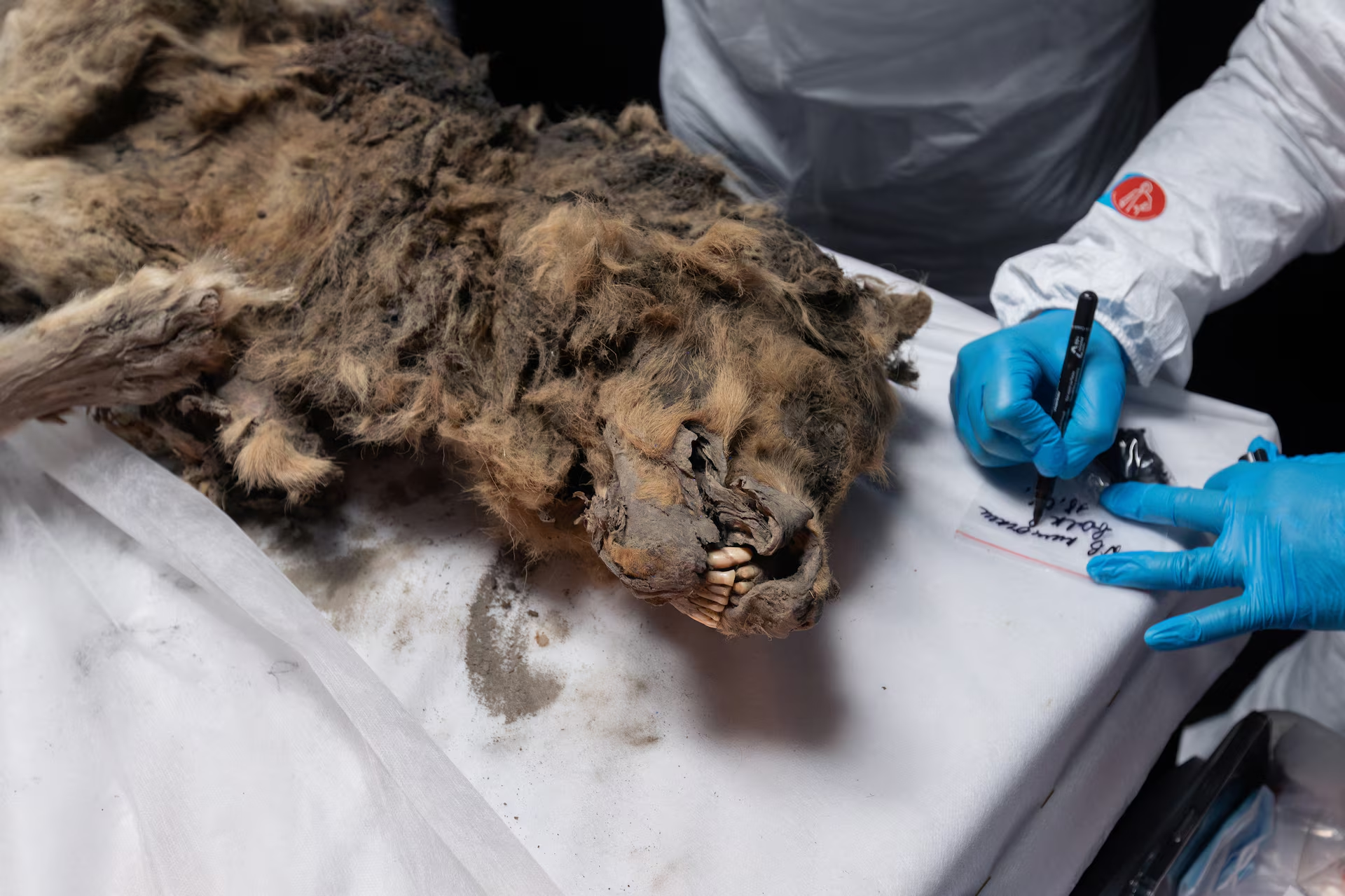YAKUTSK, Russia -- In Russia's far northeastern Yakutia region, local scientists are performing an autopsy on a wolf frozen in permafrost for around 44,000 years, a find they said was the first of its kind.
Found by chance by locals in Yakutia's Abyyskiy district in 2021, the wolf's body is only now being properly examined by scientists.
"This is the world's first discovery of a late Pleistocene predator," said Albert Protopopov, head of the department for the study of mammoth fauna at the Yakutia Academy of Sciences.
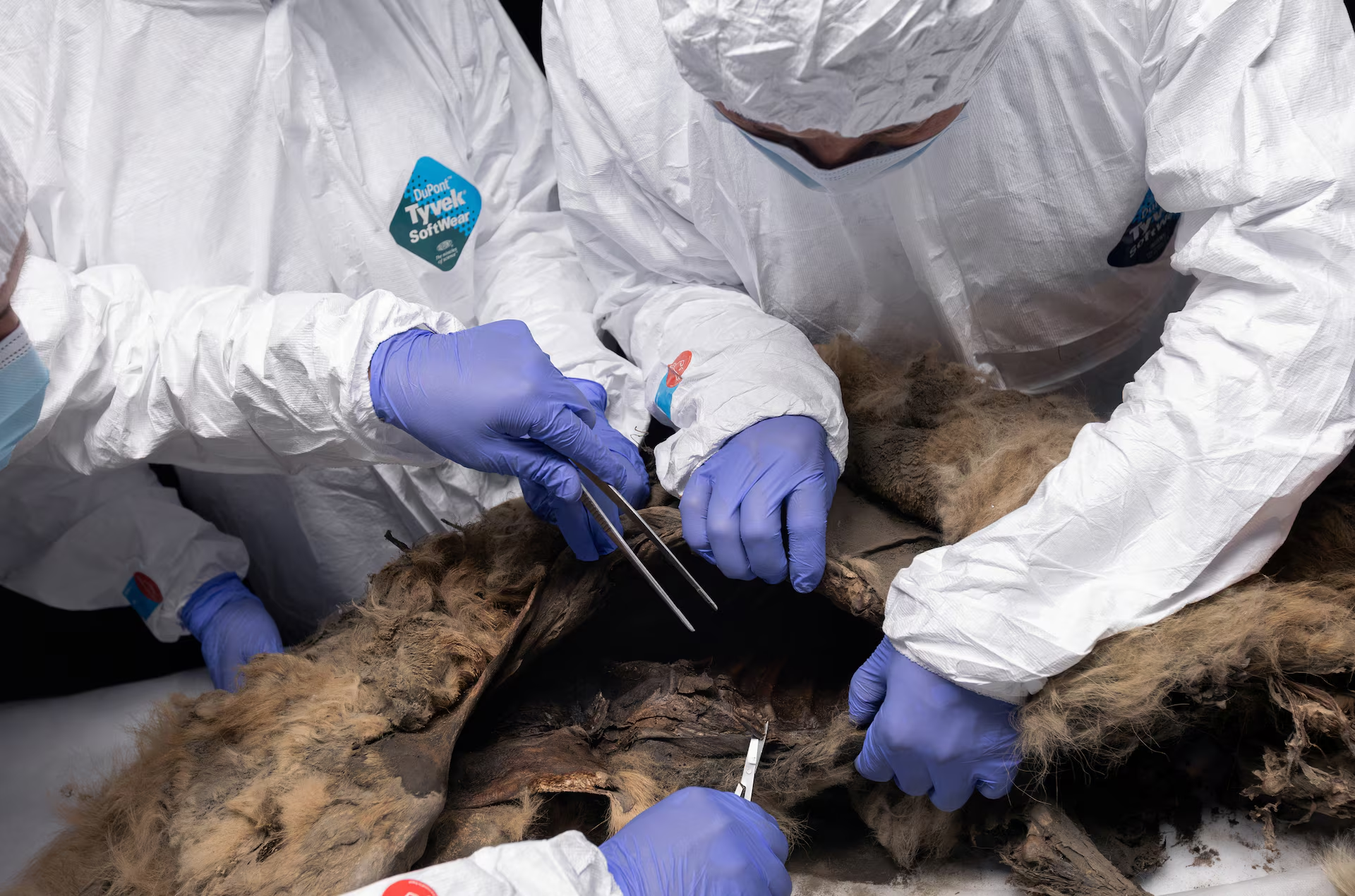 |
| Scientists perform an autopsy of an ancient wolf, frozen in permafrost for more than 44,000 years and found by locals in Yakutia, at the laboratory of the North-Eastern Federal University in Yakutsk, Russia June 18, 2024. Michil Yakovlev/North-Eastern Federal University/Handout via Reuters |
"Its age is about 44,000 years, and there have never been such finds before," he said.
Sandwiched between the Arctic Ocean and in Russia's Arctic far east, Yakutia is a vast region of swamps and forests around the size of Texas, around 95% of which is covered in permafrost.
Winter temperatures in the region have been known to drop to as low as minus 64 degrees Celsius (-83.2°F)
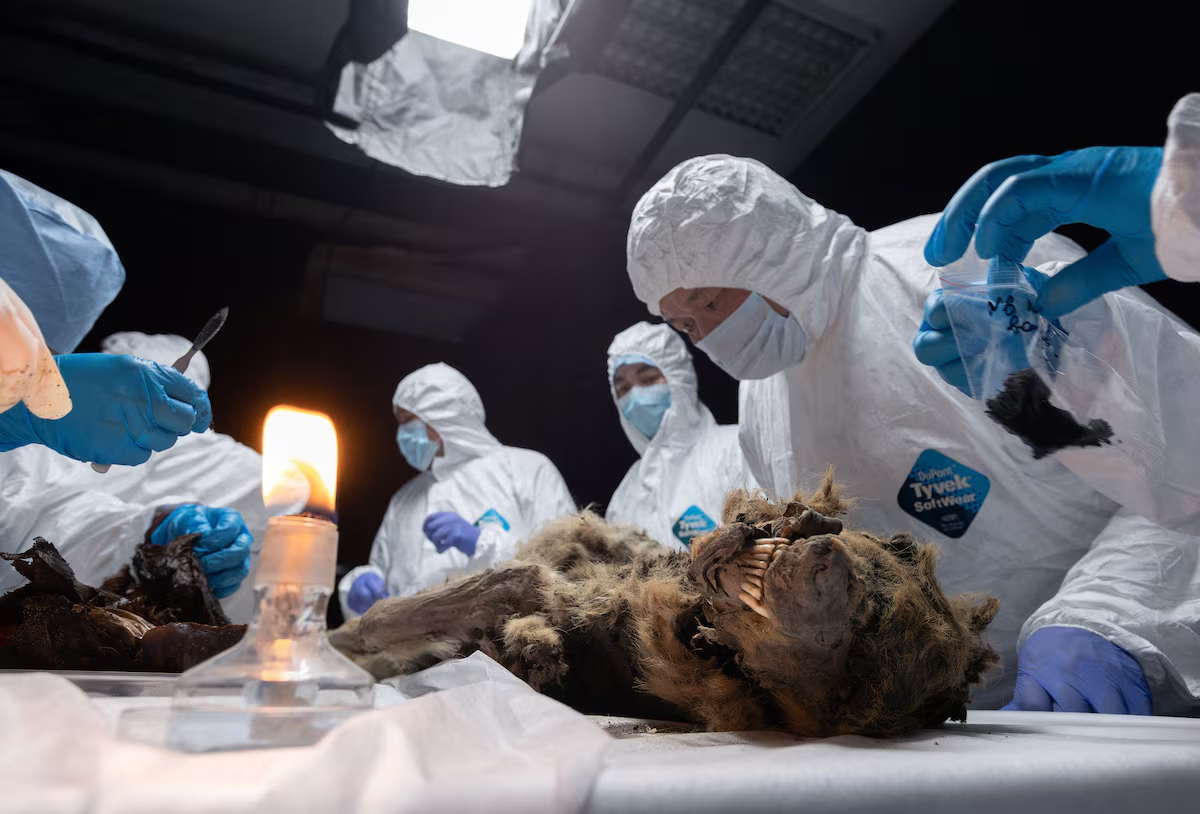 |
| Scientists perform an autopsy of an ancient wolf, frozen in permafrost for more than 44,000 years and found by locals in Yakutia, at the laboratory of the North-Eastern Federal University in Yakutsk, Russia June 18, 2024. Michil Yakovlev/North-Eastern Federal University/Handout via Reuters |
"Usually, it's the herbivorous animals that die, get stuck in swamps, freeze and reach us as a whole. This is the first time when a large carnivore has been found," said Protopopov.
While it's not unusual to find millenia-old animal carcasses buried deep in permafrost, which is slowly melting due to climate change, the wolf is special, Protopopov said.
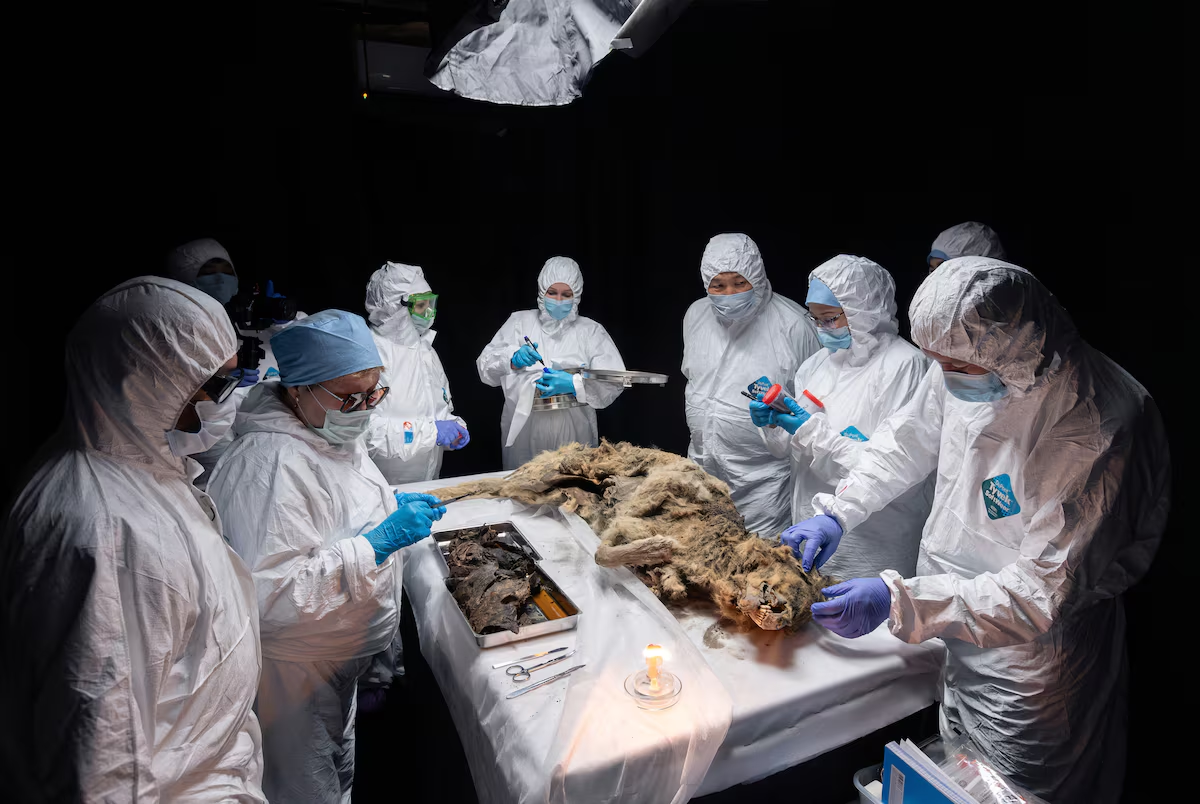 |
| Scientists perform an autopsy of an ancient wolf, frozen in permafrost for more than 44,000 years and found by locals in Yakutia, at the laboratory of the North-Eastern Federal University in Yakutsk, Russia June 18, 2024. Michil Yakovlev/North-Eastern Federal University/Handout via Reuters |
"It was a very active predator, one of the larger ones. Slightly smaller than cave lions and bears, but a very active, mobile predator, and it was also a scavenger," he added.
For Artyom Nedoluzhko, development director of the paleogenetics laboratory at the European University of St Petersburg, the wolf's remains offer a rare insight into the Yakutia of 44,000 years ago.
"The main goal is to understand what this wolf fed on, who it was, and how it relates to those ancient wolves that inhabited the northeastern part of Eurasia," he said.
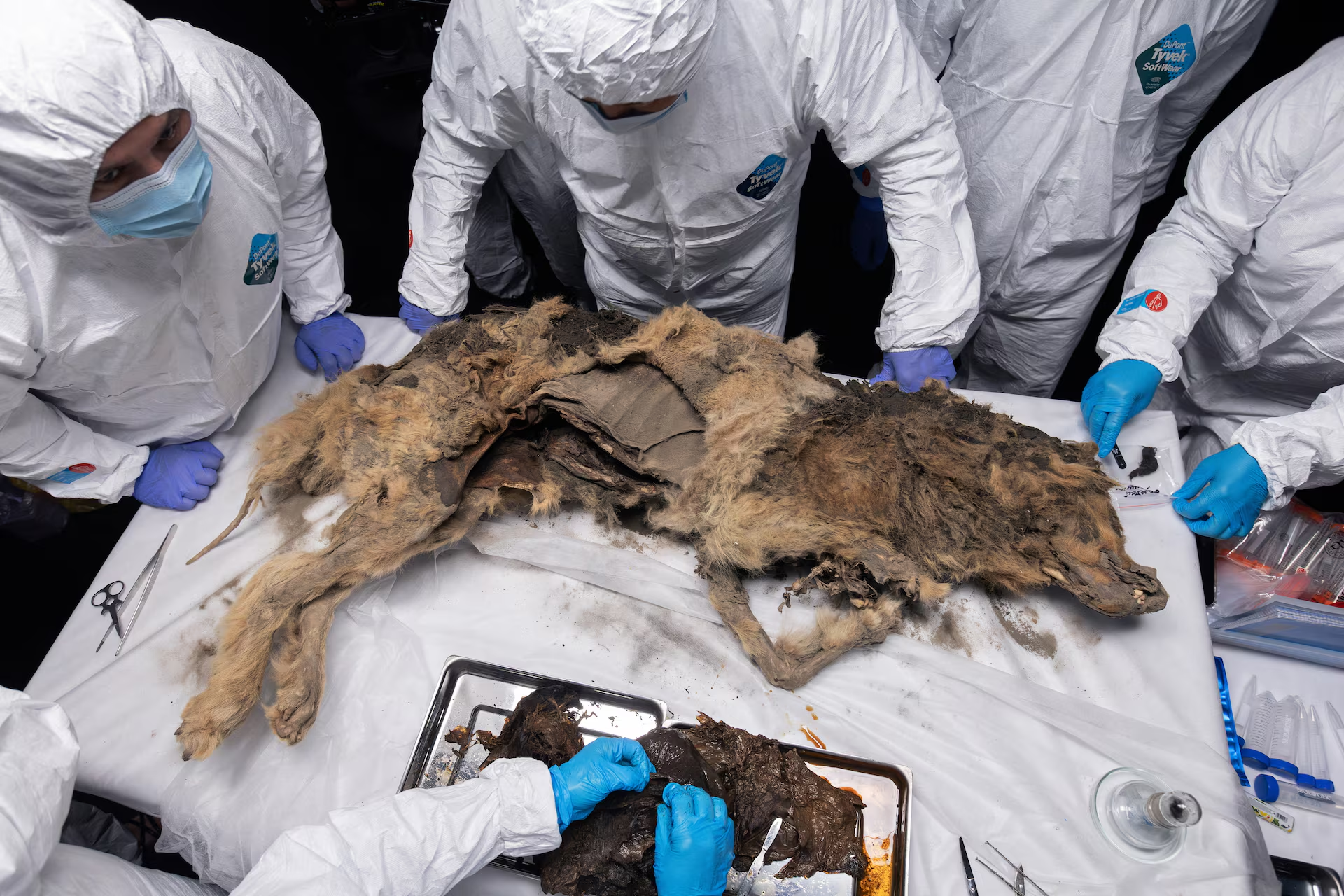 |
| Scientists perform an autopsy of an ancient wolf, frozen in permafrost for more than 44,000 years and found by locals in Yakutia, at the laboratory of the North-Eastern Federal University in Yakutsk, Russia June 18, 2024. Michil Yakovlev/North-Eastern Federal University/Handout via Reuters |



